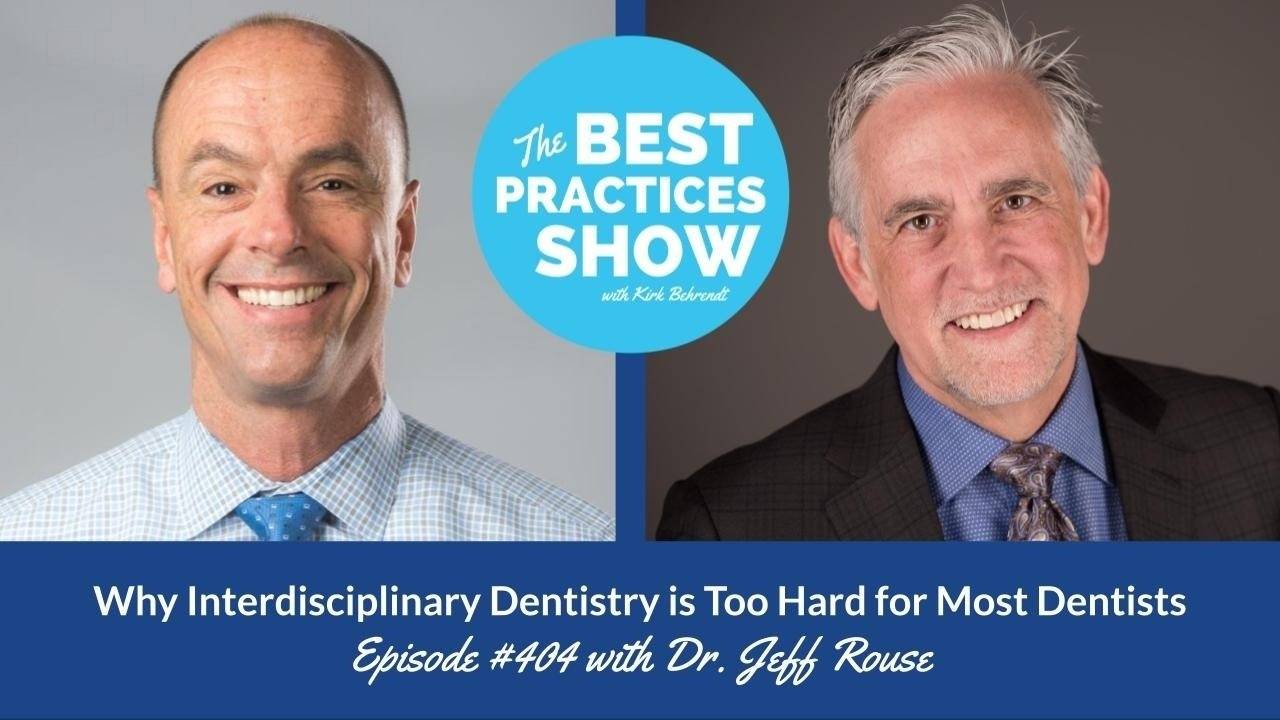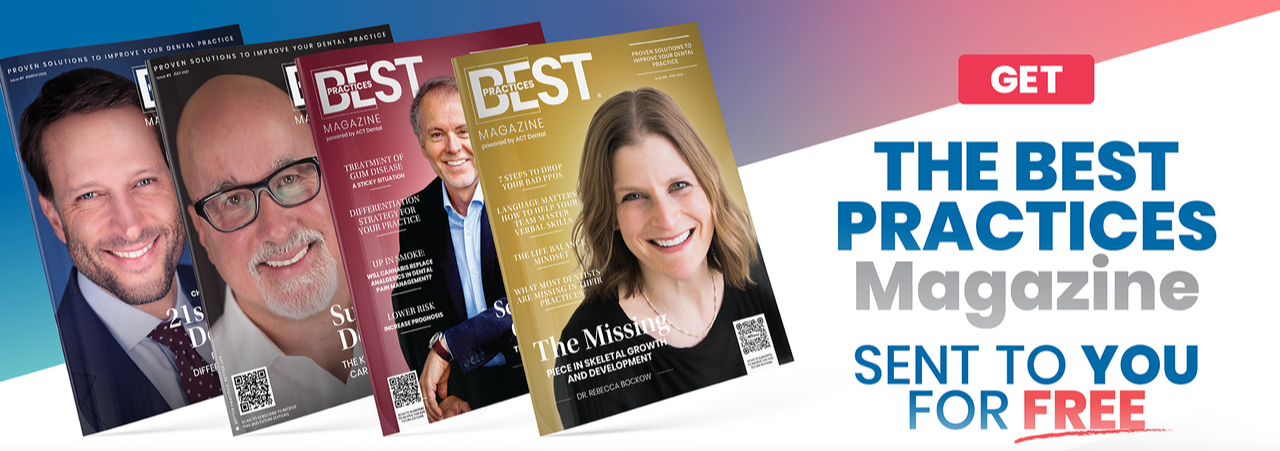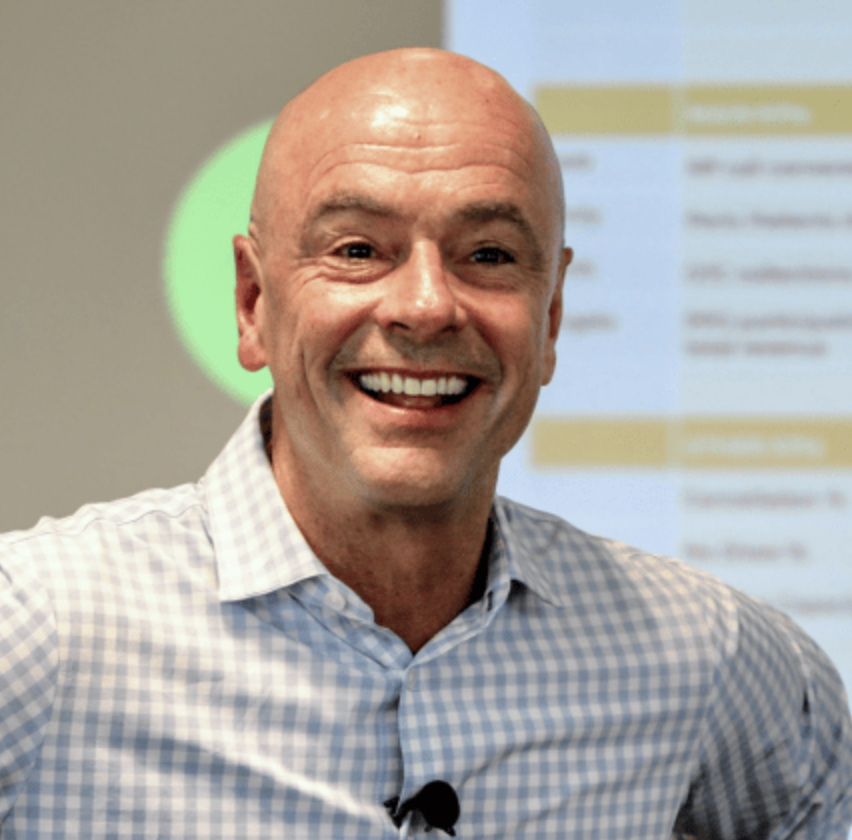
Interdisciplinary dentistry is the future. So, why isn't there more buy-in, and why are dentists struggling to give interdisciplinary care? To reveal why it’s so difficult and the steps you can take to get started, Kirk Behrendt brings back Dr. Jeff Rouse from Spear Education for his thoughts and advice to help you provide the best care for your patients. It’s time to help patients beyond their teeth! To learn how, listen to Episode 404 of The Best Practices Show!
Main Takeaways:
- Education in interdisciplinary care is lacking.
- Don't just focus on structure and biology issues.
- Go beyond products and materials to help patients.
- Airway is the gateway to comprehensive dentistry.
- Join a study club!
Quotes:
- “You have to feel confident and competent in doing [dentistry]. So, you have to have the education and spend the time learning it. And there are, unfortunately, very few places to learn that. A majority of the education we have is focused on technique because it’s company-driven, a lot of it. It’s, ‘I want to learn about E-MAX. I want to learn about zirconia systems. I want to learn about composites,’ because you're going to do a procedure. And the thought process is, ‘Show me how to do that thing, and then I'll go back and do that thing and make more money doing that thing.’ So, it’s technique, materials. Or it’s product, ‘Get me a scanner. Get me a milling machine. Get me a laser.’ Things. But once again, it’s materials from a company, your product from a company, driving dentistry. And unfortunately, for us, it also plays into what dental school taught us, which is how to work with materials and how to work with product.” (13:01—14:38)
- “When we go through in dental school and put together a treatment plan, all we do is list what's broken, what's diseased, what I'm going to do about it. So, it’s singular. It’s, ‘Tooth number two has a . . . Tooth number 31 has a . . . They have this, and I'm going to use this technique in order to take care of it. This product. This machine.’ And that's not interdisciplinary dentistry at all. So, our education is lacking.” (14:39—15:27)
- “Airway gives you the opportunity to get the patient out of the hygiene operatory, whereas talking to them about their teeth are worn, their teeth are in the wrong location, the teeth have the gums covering them; they need to be pushed back, harder conversation to have with people. Much more difficult. Especially wear patients, malocclusions, really difficult conversation because you don't want people, when they're brand-new to your practice, to think you're just after their money.” (18:14—18:47)
- “I'm now seeing this increase in younger dentists doing what I'm going to call better dentistry, at least more exciting dentistry, more profitable dentistry, than they ever have before. It’s not because of the way we now teach it at Spear versus how Bill and I taught it; it’s because airway looks at skeletal and dentoalveolar as it relates to the skeleton differently than we ever have. It adds this extra piece.” (23:03—23:39)
- “Airway gets people in for comprehensive evaluations, and it gets them to do more complex, comprehensive dentistry than I've ever had opportunities to do before.” (25:22—25:34)
- “There are people out there that want to help you be better than what you are right now, and to achieve better than they are. If you're excited enough to be one of the best, there are lots of people that are willing to help you get there.” (28:18—28:33)
- “Young dentists need to know that there are people that want to help them. And a study club format is probably the best way to go about doing that. And the two that I've been associated with are Seattle Study Club and Spear Study Club. They both have their own advantages and disadvantages, but they're both critical. In fact, if you can be in both, it’s even better. If you could figure out a way to be in both of them that would be awesome, because you get the advantages of both of them.” (31:10—31:48)
- “If I'm young, I'm getting in a study club in my town, and I'm sucking it up and paying whatever the money is to do that. And then, I'm educating myself less in technique and product and more in how to treatment plan better. Because once I learn that, then the technique stuff follows — because I've got to have somebody to work on.” (31:49—32:22)
- “There's an evolution that comes and you have to follow the sequence, which is, learn how to treatment plan first. Put all your effort into learning how to treatment plan. And that includes components of occlusion as well as smile design, as well as airway things. Once you’ve got that nailed, now you can start feeding these other things into it.” (32:44—33:05)
- “The problem is people call airway stuff that it’s not. They continue to call sleep appliances airway. I focus on airway in my practice. ‘Well, what do you do?’ ‘Well, I make sleep appliances.’ That's not airway. That's holding the jaw forward at night so that people breathe better. That's not airway. Airway is about focusing on the poorly developing or developed skeleton that has altered the patient’s ability to breathe nasally and changing that environment back to a more healthy environment, hopefully, at three or four years old. But no matter what age, it happens to show up in your office.” (35:11—36:08)
- “Don't just focus on the structure and biology issues. Really help patients refine their smile and their function and become healthier, because it is so much more valuable for the patient, and it is so much more exciting for the dentist.” (41:49—42:15)
- “It’s just a drain if all you're doing is working on ones and twos all the time. Do something bigger. See a bigger picture.” (42:36—42:46)
Snippets:
- 0:00 Introduction.
- 3:45 Dr. Rouse’s background.
- 9:56 Be willing to take a chance.
- 12:32 Why interdisciplinary dentistry is hard for some dentists.
- 16:20 Airway can get patients out of hygiene.
- 26:08 Advice for young dentists.
- 33:06 Advice for getting into fee-for-service dentistry.
- 34:39 Are more dentists going the interdisciplinary route?
- 40:30 Last thoughts.
- 42:48 Dr. Rouse’s course and contact information.
Reach Out to Dr. Rouse:
Dr. Rouse’s Facebook: https://www.facebook.com/jeff.rouse.58
Dr. Rouse’s social media: @jeffreyrouse
Spear Education website: https://www.speareducation.com/
Resources:
The Celestine Prophecy by James Redfield: https://www.goodreads.com/book/show/13103.The_Celestine_Prophecy
Seattle Study Club: https://seattlestudyclub.com/
Spear Study Club: https://www.speareducation.com/study-club
Dr. Jeff Rouse Bio:
Dr. Rouse is recognized as a pioneer in the field of airway prosthodontics — the impact that a compromised airway has on the stomatognathic system. Along with fellow Spear Resident Faculty member, Dr. Greggory Kinzer, he developed the "Seattle Protocol" to recognize, control, and direct resolution of airway distress in a restorative dental practice.
Dr. Rouse maintains a private practice in San Antonio, Texas, and practices with Dr. Kinzer and Dr. Frank Spear in Seattle. He is also an adjunct assistant professor in the Department of Prosthodontics at The University of Texas Health Science Center at San Antonio. Among his dental accolades, he has written numerous journal articles, including a portion of the “Annual Review of Selected Dental Literature” published each summer in the Journal of Prosthetic Dentistry. Most recently, he co-wrote a textbook by Quintessence titled, Global Diagnosis: A New Vision of Dental Diagnosis and Treatment Planning.
After graduating from dental school in San Antonio, Dr. Rouse completed a two-year general practice residency at the University of Connecticut Health Science Center. He practiced family dentistry for 12 years before returning to school to earn his specialty certificate in prosthodontics from The University of Texas Health Science Center at San Antonio in 2004. He is a member of the American Academy of Restorative Dentistry and American College of Prosthodontists, and past president of the Southwest Academy of Restorative Dentistry.
Categories
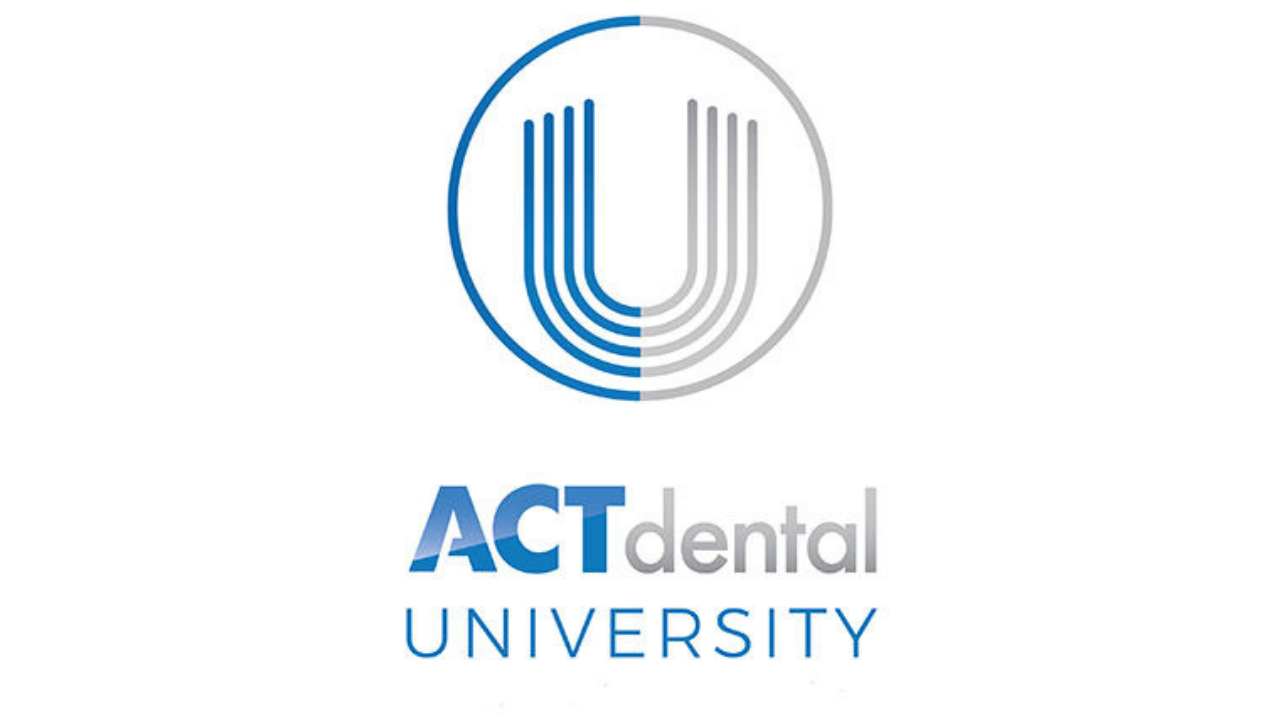
Get access to the best dental educators on the planet to bring you "best practices" and help you become the dentist you were called to be. Watch what you want, when you want it. It's 24/7 on-demand access. Friday's we host "Master Classes" with the very best dental speakers you will ever see.
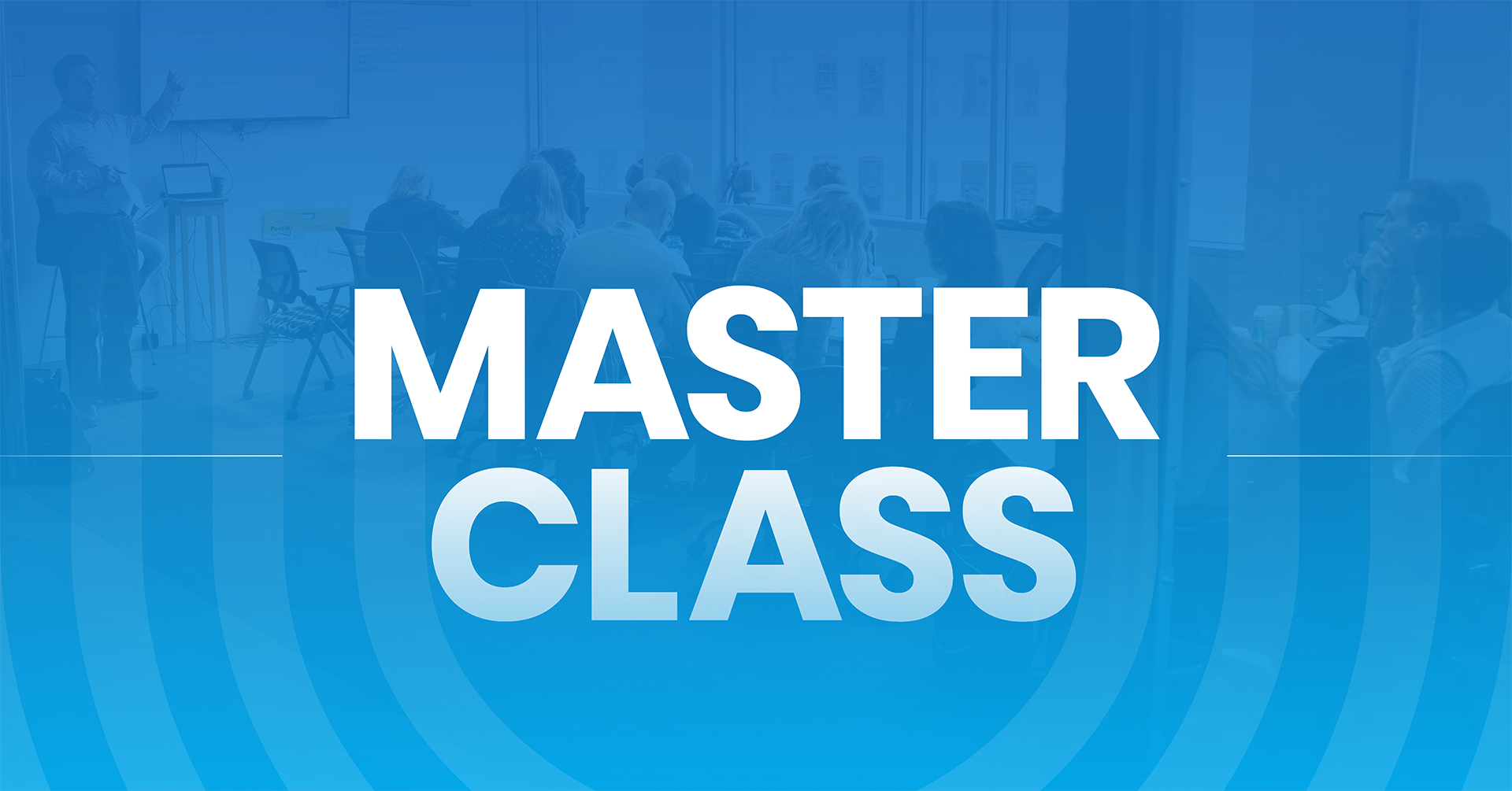
Reserve your spot at the next ACT Dental Master Class
Learn From One of the Best Educators During Our BEST PRACTICES MASTER CLASS Experience.
Kirk Behrendt
Kirk Behrendt is a renowned consultant and speaker in the dental industry, known for his expertise in helping dentists create better practices and better lives. With over 30 years of experience in the field, Kirk has dedicated his professional life to optimizing the best systems and practices in dentistry. Kirk has been a featured speaker at every major dental meeting in the United States. His company, ACT Dental, has consistently been ranked as one of the top dental consultants in Dentistry Today's annual rankings for the past 10 years. In addition, ACT Dental was named one of the fastest-growing companies in the United States by Inc Magazine, appearing on their Inc 5000 list. Kirk's motivational skills are widely recognized in the dental industry. Dr. Peter Dawson of The Dawson Academy has referred to Kirk as "THE best motivator I have ever heard." Kirk has also assembled a trusted team of advisor experts who work with dentists to customize individual solutions that meet their unique needs. When he's not motivating dentists and their teams, Kirk enjoys coaching his children's sports teams and spending time with his amazing wife, Sarah, and their four children, Kinzie, Lily, Zoe, and Bo.
RECENT POSTS
876: The Kois-Coachman Digital Dentistry Event & The IntraOral Scanner Festival – Dr. Christian Coachman
April 18, 2025
Rest Isn't A Reward, It's A Requirement!
April 14, 2025
Data Snapshot: # of Office Days Open
April 11, 2025
Weather Any Storm: The Power of Focus
April 07, 2025
871: Metric Mondays: Gross Profit Percentage: The Health Indicator of Your Practice – Dr. Barrett Straub
April 07, 2025
Embrace Conflict to Unlock Trust
April 04, 2025
